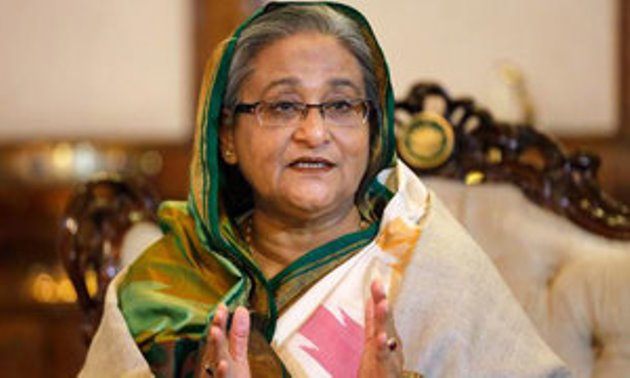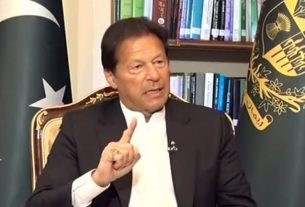At least 18 arson attacks preceded the vote but the election day passed relatively calmly. Turnout was around 40%, Chief Election Commissioner Kazi Habibul Awal said after the polls closed.
Security incidents, including four deaths in an arson attack on a passenger train on Friday, have intensified tensions ahead of the election that was shunned by the opposition Bangladesh Nationalist Party and its allied groups. They accuse Hasina of turning Bangladesh into a one-party state and muzzling dissent and civil society. Authorities blamed much of the violence on the BNP, accusing it of seeking to sabotage the election.
On Saturday, detectives arrested seven men belonging to the BNP and its youth wing for their alleged involvement in the train attack. The party denied any role in the incident. On Sunday, a supporter of a candidate from the ruling Awami League was stabbed to death in Munshiganj district near Dhaka, officials said. Police did not comment immediately. A victory for the 76-year-old Ms Hasina, the country’s longest-serving leader and one of its most consequential, would come with a deeply contentious political landscape. The vote, like previous elections, has been defined by the bitter rivalry between Ms Hasina’s Awami League and BNP, led by former premier Khaleda Zia, who is ailing and under house arrest on corruption charges, which her supporters claim are politically motivated.
The two women ran the country alternatively for many years, cementing a feud that has since polarised Bangladesh’s politics and fuelled violence around elections. This year’s vote raised questions over its credibility when there are no major challengers to take on the incumbent. Badshah Mia, a rickshaw puller in Dhaka, said he would not vote given the limited choices, adding that the atmosphere did not exude that of “a fair election”. Sakibul Hasan Chowdhury, a businessman, felt the same, saying: “There is no opposition and no candidate of my choice. So how would I benefit from voting?”
A small business owner, Habibur Rahman, said he was voting for the ruling party candidate in his constituency but added that there did not seem to be much of a turnout. Critics and rights groups say the vote follows a troubling pattern, where the past two elections held under Hasina were sullied by allegations of vote-rigging, which authorities have denied, and another boycott by opposition parties. The government has rejected a monthslong demand by the BNP to have a neutral caretaker government administer Sunday’s vote. The government has defended the election, saying 27 parties and 404 independent candidates are participating.
But with scores of candidates from the Awami League running as independents and mostly smaller opposition parties in the race, analysts say Hasina’s win is near inevitable. Michael Kugelman, director of the South Asia Institute at the Wilson Centre, said none of those contesting would be able to mount much of a challenge to Ms Hasina’s party.__Daily Times





